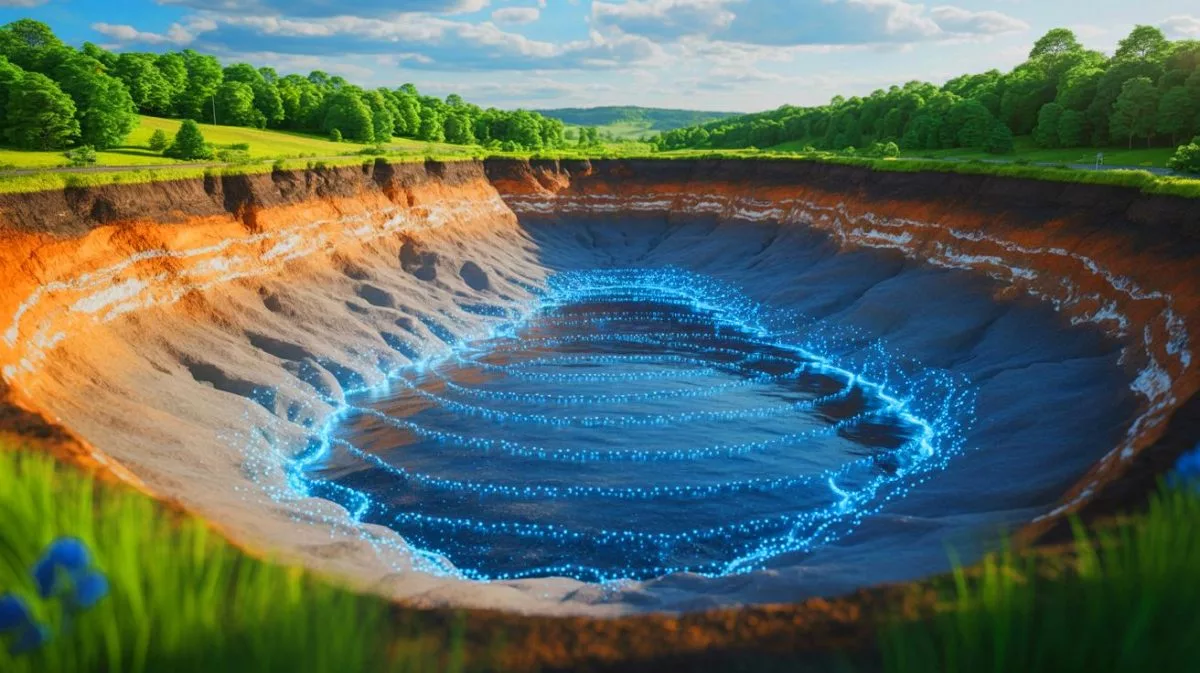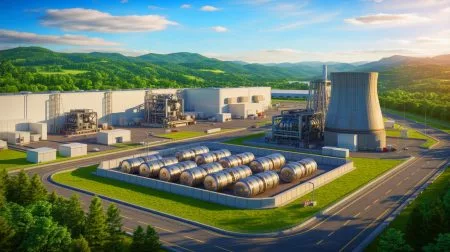| IN A NUTSHELL |
|
The discovery of a massive natural hydrogen reserve in Lorraine, France, marks a significant turning point for the country’s energy landscape. Scientists have identified a staggering 46 million tons of natural white hydrogen, potentially the largest known deposit to date. This unveiling holds immense promise for Europe’s energy transition, presenting both ecological and economic opportunities. As the global community seeks sustainable alternatives to fossil fuels, this finding could play a crucial role in shaping the future of energy in France and beyond.
The Discovery and Its Potential
In the heart of the Moselle region, the former mining basin of Folschviller has become the site of a groundbreaking discovery. Researchers have unearthed an enormous deposit of white hydrogen, buried beneath the once-industrial landscape. White hydrogen is a naturally occurring gas that can be used as a clean energy source. This particular deposit’s sheer size and accessibility make it a lucrative prospect for energy production and distribution.
The potential applications of this hydrogen reserve are vast. Hydrogen is a versatile energy carrier that can be used in various sectors, including transportation, industry, and residential heating. The discovery in Lorraine could provide a dependable and sustainable energy source, reducing reliance on traditional fossil fuels. As Europe pushes toward its renewable energy targets, this hydrogen reserve could serve as a cornerstone for the continent’s clean energy strategy.
Economic and Industrial Revitalization
The economic implications of this hydrogen find are profound, particularly for the Lorraine region. Once a hub of coal mining, Lorraine has faced economic decline in recent decades. The hydrogen discovery offers a chance to invigorate the local economy, creating jobs and attracting investment. The development of hydrogen production facilities could lead to the resurgence of local industries, providing a new lease on life for the region.
Beyond local impact, the hydrogen deposit could reposition France as a leader in the clean energy sector. By harnessing this resource, France could reduce its energy imports and increase its energy independence. Moreover, the strategic development of hydrogen infrastructure could foster innovation and technological advancements, further boosting the nation’s industrial capabilities.
Environmental Implications and Challenges
The environmental benefits of exploiting this hydrogen reserve are considerable. Hydrogen, when used as a fuel, produces only water vapor, making it a zero-emission energy source. The transition to hydrogen could significantly reduce carbon emissions, contributing to global efforts to combat climate change. However, the extraction and utilization of this resource must be managed carefully to minimize environmental impact.
There are challenges associated with hydrogen production and use that must be addressed. Infrastructure development, including pipelines and storage facilities, is essential to ensure efficient and safe distribution. Additionally, the production process must be refined to prevent potential leaks and contamination. As France moves forward with this discovery, it will be crucial to balance economic aspirations with environmental responsibility.
Implications for European Energy Policy
The Lorraine hydrogen discovery has far-reaching implications for European energy policy. As the European Union seeks to meet its climate targets, the availability of a substantial hydrogen supply could accelerate the transition to renewable energy. This discovery could position France as a key player in the European hydrogen market, fostering collaboration and trade across the continent.
Furthermore, the hydrogen reserve could influence energy policy discussions at the EU level, encouraging the development of a cohesive strategy for hydrogen integration. By leveraging this resource, Europe could strengthen its energy security and reduce dependence on external energy sources. The discovery presents an opportunity for France and Europe to lead in the global shift toward sustainable energy solutions.
As France and Europe explore the potential of this hydrogen discovery, the path forward will require careful planning and collaboration. The economic, environmental, and policy implications are vast, and stakeholders must work together to realize the full potential of this resource. How will this discovery shape the future of energy in France and Europe, and what steps will be taken to ensure its sustainable development?
Did you like it? 4.5/5 (26)








Wow, 46 million tons of hydrogen? That’s like striking gold, but greener! 🌿
Wow, this is huge news for France! But how will this affect the local environment? 🌍
Will this hydrogen reserve actually lead to lower energy prices in Europe?
Is this really going to change everything? Sounds too good to be true.
France has been sitting on clean energy gold this whole time? Incroyable!
Thanks for the article! Looking forward to seeing how this develops. 😊
How long will it take to start tapping into this hydrogen reserve?
Great article. The hydrogen discovery is promising, but let’s hope the environmental impact is minimal.
How long will it take before this hydrogen can be used on a large scale?
Why did it take so long to find this hydrogen deposit? 🤔
The potential for economic revitalization in Lorraine is exciting! Hope it brings lots of jobs. 💼
This news is electrifying! ⚡ France could really lead the clean energy charge.